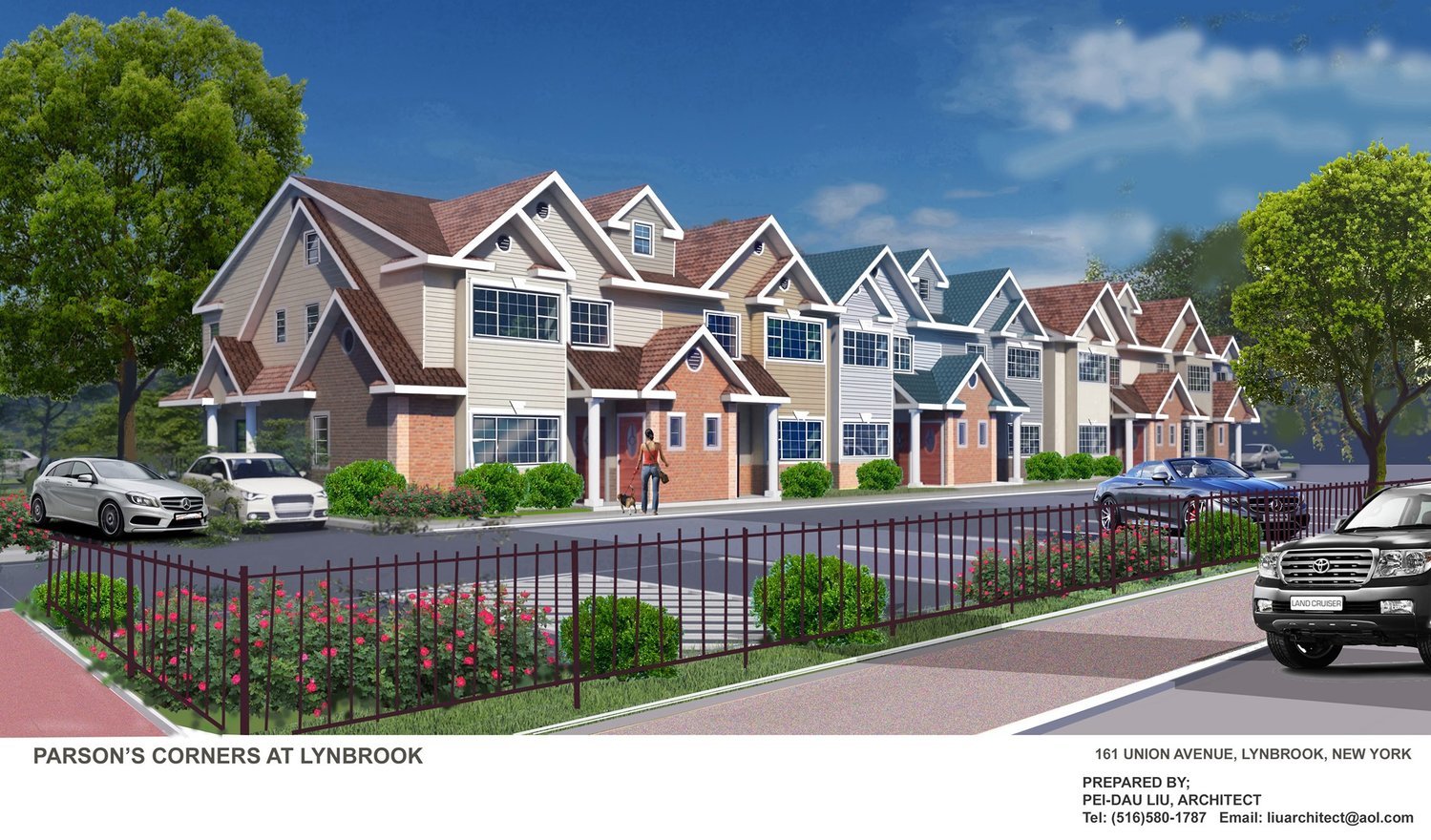Lynbrook board OKs condo project
The Lynbrook village board voted unanimously Monday to approve an 18-unit condominium complex at 161 Union Ave., where a sushi restaurant now operates.
Long Island Building Corp. plans to construct two condo buildings, to be called Parson’s Corners at Lynbrook, containing two one-bedroom and 16 two-bedroom units that would be sold, not rented. The proposed 27-foot-tall buildings would have basement storage units and 38 parking spaces for condo owners.
After the meeting, Mayor Alan Beach said the board members believed the project made sense for Lynbrook.
“The board reviewed the proposal and was unanimous in their decision that this would be a good project for the village,” he said in a statement.
In November, William Bonesso, attorney for Long Island Building Corp., said the developers did not expect the project to affect nearby traffic or the schools. Bonesso, of the Uniondale-based firm Forchelli, Deegan and Terrana LLP, added that the developers would not seek a or payment in lieu of taxes, or PILOT, agreement from the Nassau County or Town of Hempstead Industrial Development Agency. Property taxes on the new project, he said, would increase to roughly $234,000 a year, or triple the $78,000 that is collected now. And Bonesso brought an ap-praiser who said that area home values would increase if the project were approved.
Additionally, Bonesso said, the Nassau County Planning Commission voted in favor of the plan, while village Building Superintendent Brian Stanton said it would blend in with neighboring properties without hurting the local environment.
The Lynbrook Chamber of Commerce endorsed the condominiums in a letter. “The chamber board feels that the project has the potential of being a great benefit to both the Lynbrook community and our local businesses,” President Steve Wangel wrote. “The board is hopeful for approval by the village trustees so that this project can commence as soon as possible.”
With the project approved, developers must now seek variances and further approvals before work can begin. The developers plan to rezone the area from a commercial-and-dwelling district to an all-dwelling district. They will require a special-use permit for the proposed multi-family use.
If the rezoning were approved, the village’s Board of Zoning Appeals would have to OK parking variances, and the developer would need site plan approval by the village’s Architectural Review Board, in coordination with the county Department of Public Works and fire marshal’s office. The project is expected to take about a year to complete.
The complex is to be built where the Asahi Hibachi Sushi restaurant has operated since 2014. The restaurant’s owner, Jiabiao Wang, appeared at a Nov. 16 public hearing and submitted a letter asking the village board to block Union Property NY LLC from selling the land to Long Island Building Corp. The board unanimously decided to postpone a vote on the plan at that time, and then approved it on Monday.
At the November meeting, Wang’s friend and restaurant patron Dan Weisner read Wang’s statement to the board, explaining that the restaurateur is not fluent in English. In his letter, Wang noted that he had a valid lease with Union Property through 2023 that came with two five-year options, allowing him to extend the agreement through 2033, and that he had done nothing to violate it.
“I urge the board to deny it,” the letter read. “We are proud of our restaurant, our food, our service, our cleanliness inside and out, [and] the excellent relations we enjoy with the local neighborhood. We are a bother to no one. We are and have always been welcomed as good neighbors.”
In an email to the Herald after the vote, Weisner said Wang was “disappointed” and was considering his options.
Village Attorney Tom Atkinson said Monday that a potential legal dispute between the property owner and Wang would not involve the board. “Our understanding is that there’s a dispute between the tenant and the landlord there,” he said. “This petition is not made by either one of them; this petition is actually made by the developer, so there is no [liability] between the village and the restaurant owner.”

 50.0°,
Fair
50.0°,
Fair 




